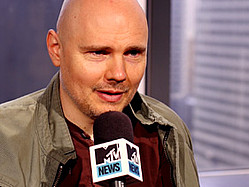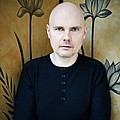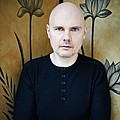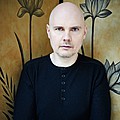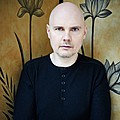First things first: Billy Corgan would like it to be known that he does not actually want to piss on Radiohead, despite the interview he gave last week in which he declared, rather matter-of-factly, "I'll piss on Radiohead."
Turns out, most things involving Corgan, the Smashing Pumpkins or anything else Corgan's done over the past 25 years (professional wrestling, Scorpions' concept albums, Zwan) cannot adequately be described as "matter of fact." So here, in the same all-in manner in which he approaches most aspects of his life, is his full explanation of that Radiohead quote and the ensuing fallout it caused.
"Look, if anybody wants any insight into my real character, I'm willing to play the fool, to point out where things are foolish. For example, addressing the Radiohead quote, where the quote was 'I'll piss on Radiohead.' The context of the quote was saying 'I'm willing to poke fun at something because there's so much pomposity around it that it's treated as reverent and holy,' " Corgan told. "So what ends up happening? The quote ends up getting picked up, which shows [people think] 'How dare anybody criticize the band that's un-criticizable?' And that's really funny; why is a band un-criticizable? I'm an artist who it is apparently OK to criticize, and I've made a career out of playing with that criticism and subverting it.
"One of my main complaints about the music business is that it ignores a lot of music that people really, really like. Heavy metal being particularly one of them. You can say in a crowded room that 'Oh I love Radiohead,' and everyone goes, 'Oh yeah, me too.' But if you say 'I love Iron Maiden,' people go 'What?' " he continued. "That's not cool, and yet, heavy metal bands seem to sell a lot of records and draw a lot of fans. Why are those fans ignored? It's the same high school game ... it's still the same sh--. It's still some guy in a corner with a beard telling me I'm not cool enough, yet I pioneered the very form of music that he's still talking about 20 f---ing years later."
Get it? Good. Corgan wasn't taking a shot at Radiohead but rather the industry that has turned them into sacred cows. And if he sounds bitter, well, that's because he is. After all, unlike most of his alt-rock contemporaries, he's rarely the subject of voluminous praise, and the past decade of his work has, to varying degrees, largely been ignored by the mainstream. Though all of that may change with the Pumpkins' brand-new Oceania album, which, thanks to its voluminous scope, ringing solos and proudly anachronistic aesthetics — hour-plus running time, lack of discernible singles and the like — has critics talking about a full-blown Pumpkins' revival.
And yes, Mr. Corgan finds all of that very amusing indeed.
"Part of the steam and energy behind the new Smashing Pumpkins record is very few people actually thought I'd make a great record again, I'm not oblivious to that," he said. "And it gives very little credit to the fact that I haven't been trying to make great records. I've been trying to make records in a different definition; the cultural zeitgeist version of a great record, I haven't been trying that for a long time. I just don't think there's an upside in it. Where is the upside in making a great record if the critical class isn't going to review it properly, isn't going to give it historical context, and is going to give some guy in his basement who has one good song the Hosanna review, like he's Jesus Christ walking on water. Once you see that system, you just lose interest."
And that truly seems to be the point of Oceania. Corgan isn't interested in making top 10 lists, earning raves or placing singles on modern rock radio. Instead, he just felt the need to make an artistic statement: This is who he is, 25 years into his career, without any regrets. Whether you listen or not is largely up to you; either way, he's content to be misunderstood. In fact, "content" may be an understatement.
"I [used to be] hell-bent before on destroying the bridges that I had just crossed. I don't feel the need to do that anymore. I don't feel the need to honor anything in particular, I don't feel the need to be a certain type of musician, I don't feel the need to exist in a particular culture," he said. "Because as far as I'm concerned, alternative culture on the edges has dismissed me repeatedly for, what, being an artist? That's a really strange thing. And mainstream culture has ignored me repeatedly for not selling enough records, and yet I've managed to sell a lot of records. So, ultimately, what I'd say to anybody is, true independence means you're not going to have the normal people stand up and vote for you. You have to go on your own."
